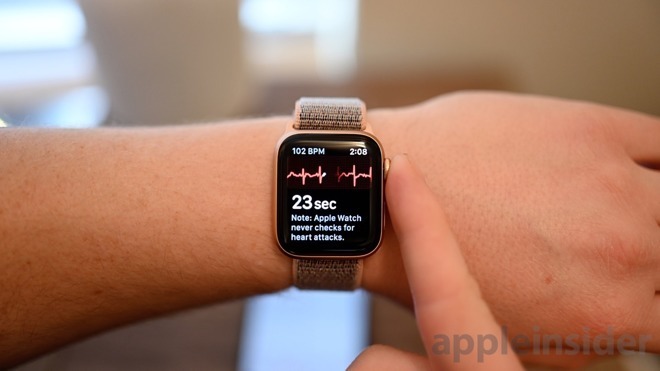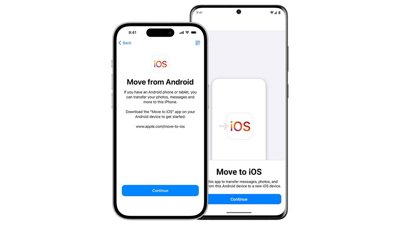Apple has reportedly spoken with "at least three" private Medicare plan providers, exploring the possibility of subsidizing the Apple Watch for seniors 65 or older.
No deals have been signed, but Apple has visited "several of the largest insurers in the market, as well as some smaller, venture-backed Medicare Advantage plans," CNBC said on Wednesday, citing multiple sources. The idea would be to reduce the cost of a Watch for people who can't justify the minimum $279 pricetag for last year's Series 3. The Series 4 starts at $399.
Both models can monitor heart rate and detect signs of atrial fibrillation. The Series 4 has additional health features, namely built-in ECG support and fall detection.
While the Watch is more expensive than other fitness trackers, insurance executives told CNBC that they're willing to work with Apple if it can show that the product can prevent costly medical treatments.
"Avoiding one emergency room visit would more than pay for the device," commented Bright Health CEO Bob Sheehy.
Apple has already made pacts with U.S. insurers outside of Medicare, for instance signing a 2016 deal with Aetna giving Watch discounts to the latter's workers and customers. Life insurer John Hancock began offering the Watch to memebers of its Vitality program in 2017, and in November 2018 UnitedHealthcare started offering the Watch for free to people who meet daily fitness goals for six months.
 Roger Fingas
Roger Fingas








 Christine McKee
Christine McKee
 William Gallagher
William Gallagher
 Amber Neely
Amber Neely

 Andrew O'Hara
Andrew O'Hara

 Sponsored Content
Sponsored Content
 Charles Martin
Charles Martin









25 Comments
We got my mom (now 84) an iPhone several years ago because it was so much easier to use than her flip phone. At least she can read a text message, but she has trouble responding to one and will routinely do things like send an e-mail with the entire message in the subject line and think it’s a text message. I seriously doubt she could figure out an Apple Watch, no matter how easy it is. My dad on the other hand has no problems with his iphone. I don’t know what the numbers are, but in that age group, there is a significant number of people more like my mom.
I applaud Apple for pushing their medical venture but dealing with insurers is not the way to do it. Deal directly with seniors (having trouble calling myself a senior but time flies when you're having fun), bypassing the corrupt insurers in this country, is a more progressive way to go. Insurers aren't going to pay for the Apple Watch, they're going to figure out a way to make the customer pay for them. I'm on Medicare (Parts A, B, and D) and have medical gap coverage through a Blue Shield company. My 40 years of paying into Medicare take care of the majority of my medical bills, which, luckily, have been very few and small. I'd rather not have to pay the Blue Shield premium and, so far, I've paid more premiums than I've received in coverage. I don't wear a watch since I retired but would if Medicare had a web portal that used a combination of Apple software and software from others to monitor my health. I'm tired of filling out the same patient information when seeing a different doctor. I want all my patient information either on my phone (backed up by Apple? in a secure partition outside the access by the FBI and others) or on a secure Medicare website. I'd rather see my taxes go towards enhancing the US government computer systems than a wide variety of other government expenditures. I want a healthy country, not a country of sick people who can't get the medical attention they need.
The insurance company I work for has plans in the market where the cost of the Watch is subsidized. Unfortunately they don’t offer it to their employees yet. https://www.unitedhealthgroup.com/newsroom/2018/2018-11-15-apple-watch-uhc-wearable.html